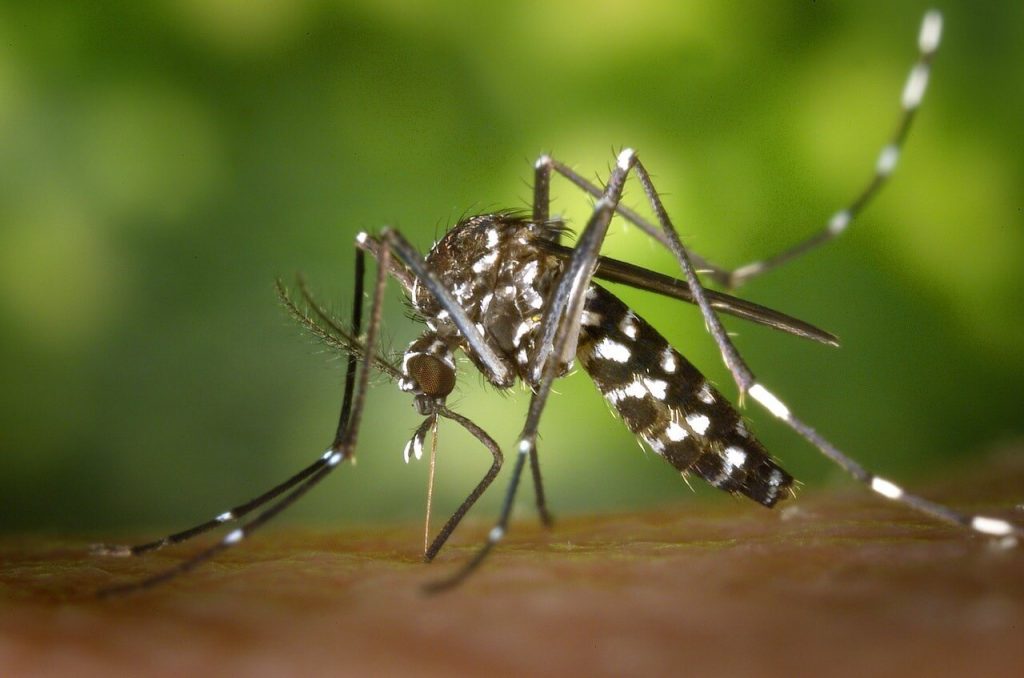According to estimates by World Health Organization (WHO) in 2020, 241 million malaria cases were reported globally. Over 627,000 died of the disease.
Most of these were children from Africa. It is clear from these numbers how serious this disease is to humanity.
However, you may ask, what is malaria and for how long has the disease been with humanity?
What is Malaria?
Malaria is a lethal disease caused by a parasite that commonly resides in a particular type of mosquito. Indeed, this kind of mosquito feeds on human blood.
Malaria can either be complicated (arising from untreated malaria) or uncomplicated (not severe).
What Are The Causes?
When a mosquito, female Anopheles, with plasmodium parasite bites, you get malaria.
Although there are quite a number of these parasites, four are known to be common in causing malaria in humans;
- Plasmodium falciparum
- The Plasmodium malariae
- Plasmodium vivax
- The Plasmodium ovale
Among these parasites, Plasmodium falciparum is the most severe. In fact, those who contract this type have a higher risk of death.
These types of parasites are in different places in the world.
From a bite to being malaria infection is a process. The parasite enters the bloodstream and moves to the liver. Once it gets there, the infection grows before going back to the bloodstream to attack red blood cells.
This is at a point in which red blood cells can burst. As a result, more parasites are released into the bloodstream. For this reason, when cells burst, you start feeling some symptoms of malaria such as fever, sweat, and chills.
Other key signs of the disease are;
- Fever
- Flu-like illness
- Headache
- Muscles aches
- Nausea
- Tiredness
- Vomiting
- Diarrhea
It is important to note that these signs vary depending on your immunity, types of parasites, among other things. Therefore, with any of these signs, you should report to the doctor for investigation and further advice.
How to Prevent Malaria
In October 2021, WHO approved the first vaccine for malaria called Mosquirix. The vaccine is injected four times to be complete. This would be the first approach towards its prevention.
Further, you should avoid mosquito bites. Although this may not happen completely, it reduces the number of bites thus minimal chances of getting the illness.
How do you avoid bites?
Ensure you close windows in places you stay and keep the environment clean to avoid dumping places which mosquitoes can breed.
Also, dusk to dawn times mosquitoes are known to be very notorious for biting and you should avoid outdoors where possible.
In the event you want to travel, you should get preventive treatment. Different drugs are prescribed for travelers depending on several factors.
Don’t assume that since you were given preventive treatment from a previous visit to a country you don’t need another one. Every country has different prescriptions due to the different parasites in those countries.
Another thing to do is sleep under insecticide-treated nets.
Lastly, apply insect repellants to your skin like Sawyer Permethrin Spray. Also, Sawyer Picaridin Lotion works well among others (they are very many in the market).
Treatment
Before treatment of this disease, a blood test is done to know the status.
After diagnosis, Malaria is treated in hospital and your doctor will prescribe medication based on some factors such as;
- Your age
- Malaria parasite you have
- Symptoms you show
With the above factors in consideration, your doctor will prescribe one or more of the below drugs for treatment;
- Artemisinin-based combination therapies (ACTs): Combination of two or more drugs that are used particularly for parasites that have become resistant to Chloroquine.WHO recommends this to treat uncomplicated malaria.
- Chloroquine phosphate: This is an OTC drug and is a chosen treatment for parasites that are sensitive to the drug. However, this drug is no longer used in many parts of the world.
- Atovaquone-proguanil (Malarone)
- Primaquine phosphate
- Quinine sulfate
In some cases, however, prescribed drugs may not do away with the illness. Consequently, what happens is that your doctor changes or uses more drugs.
Additionally, some of the parasites like Ovale or Vivax, have liver stages that take quite a long time. They would reactivate later resulting in a relapse of the infection. Second medication to these is given to prevent such situation.
The use of drugs for malaria has some side effects such as nausea, headaches, and diarrhea.
Herbal medications have not been tested for treatment and therefore are discouraged.
Effects Of Malaria
Malaria is a dangerous disease that has a lot of effects such as;
- It may cause blood vessels in the brain to swell (or cause cerebral malaria).
- Failure of body organs like liver, kidney, or spleen.
- Low levels of blood sugar
- Deaths
- Causes accumulation of fluid in the lungs resulting in breathing problems
- Anemia may occur because of destroyed red blood cells.
- Socio-economic effects are felt by those affected by the illness
Also, to note, a mother who is infected and is pregnant can pass the disease to the baby during birth (congenital malaria). It may as well cause immature birth, miscarriage, or stillbirth.
Areas Malaria is Prevalent
Various reports indicate that malaria is most common in poor areas that are tropical and subtropical. Hence, Africa is the most affected.
Some of the reasons why Africa is in the lead are:
- The presence of the Anopheles mosquito has high transmission.
- Plasmodium parasite, which causes severe malaria.
- Favorable weather conditions for transmission of the disease.
- Inefficient malaria control activities due to scarce socio-economic resources.
Other parts known to have malaria are countries like South America, Eastern Europe, and Pacific Islands.
Additionally, the Middle East, countries bordering the Mediterranean Sea, and South Asia. Although not so much in these regions, it causes considerable incapacitation.
If you need to get malaria status in different countries, check from the Center for Disease Control, which has all data you may need.
Final Words
Malaria is a deadly disease that can be can be prevented. You should check with a physician or doctor when you don’t feel well and seek medication to avoid serious problems.
Any relevant information like traveling, history of malaria among others should be disclosed when seeking medication. While using drugs, ensure you complete the dose to avoid easy recurring.
Also Read:
COVID-19: Causes, Prevention, and Treatment


